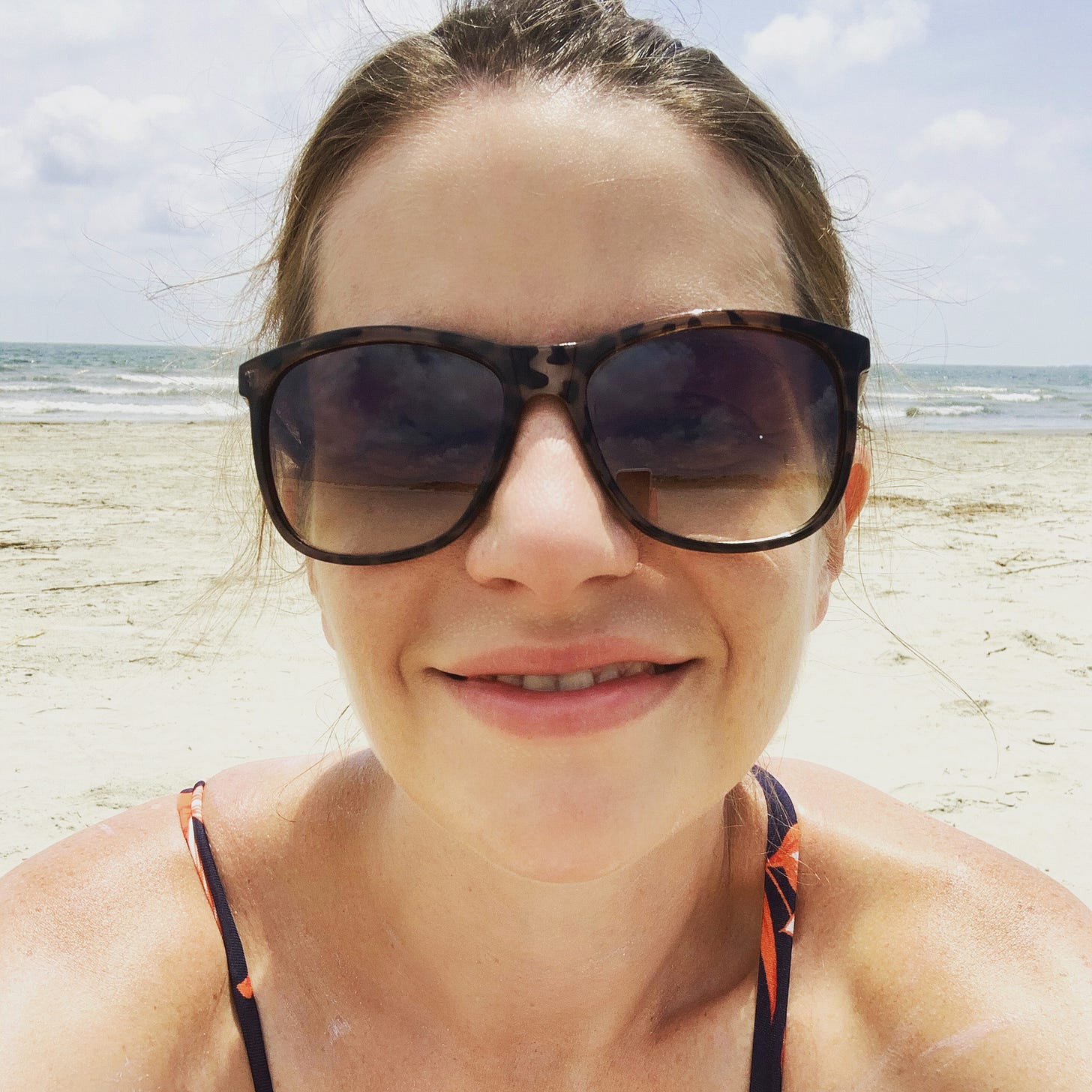I’ve had a number of new subscribers in the last month, and I thought it might be a good time to re-introduce myself.
My name is Rebekah. I grew up in the suburbs of Washington, DC, and currently live near Charleston, SC to be close to my elderly father. It’s not my favorite place to be (too hot, too flat, too swampy, no real intellectual life to speak of), but it has its charms (magnificent spreading live oaks, fragrant pines, year-round blossoms, beaches).
I’ve been a critical care nurse for most of my adult life, as well as a spiritual director, church lay leader, climate activist, psychic healer, and astrologer. An eclectic mix, for sure, but all those things have informed my perspective in profound ways.
I was raised a conservative (politically and theologically) charismatic evangelical Christian—the kind that speaks in tongues, dances around waving their arms, prays for miracles, and protests at abortion clinics. As an adult, I went through a “deconstruction” and gravitated toward a very progressive, social-justice style faith. I lived in an intentional community of spiritual lefty activists and while I no longer believe in “the movement,” I still believe in community. I’ve written quite a bit about leaving the church of social justice, and how it mirrored my experiences with evangelical fundamentalism. While I love and support my friends who continue to do organizing work, I feel quite politically homeless these days.
My emerging purpose here is to develop frameworks and stories using biology, ecology, myth, and history that help us see and interact with the Cosmos in a relational, hopeful, and grounded way. Reality is something much bigger than our ordinary senses are capable of perceiving, and learning to be in relationship with it requires us to enter the imaginal realm. Mysticism, magic, and animist frameworks are ways of doing that, so I write a lot about those topics.
I see the world as a vast, living, breathing organism of which we are but a small part. You and I are cells in God’s body, and the best thing we can do is learn to perform our function to the best of our ability. In my experience, the surest way of doing that is to listen to our authentic desires—what the Bible calls the desires of our hearts. They’re like a homing beacon that leads us where we need to go. The challenge is to sift through all the mimetic desires that fill our heads and distract us from the real—that’s the work of a lifetime.
I remain a Christian, an Episcopalian with Anglo-Catholic leanings, but I am also committed to Interspirituality—learning from other faiths, looking for commonalities, being honest about the distinctions, seeing what we have to offer one another, taking on other practices, and allowing them to illuminate my own faith. Buddhist meditation, Hindu kirtan, Sufi zikr, and neo-pagan ritual and spellwork are all things that have helped me to see deeper into the nature of reality and the God who reveals him/herself in a thousand different ways.
I think the primary work of Jesus Christ was to show us a path of self-giving love that is bigger than our fears, bigger than our jealousies and resentments, and bigger than our worst thoughts and deeds. By love I mean neither neither a milquetoast “kindness” that elides the hard bits nor a graceless “tough-love” program for perfection.
In my experience, love shows up as a gentle, sustaining presence that nourishes what is most true and good in us while cutting through our bullshit and delusions. Sometimes that last part can feel like a smack in the face. Learning to attune to and trust divine love is what allows us to walk with him through death and into resurrection on a daily basis.
I believe that Christianity as a religion has profound gifts to offer the world, but that can only happen when Christians are willing to be in a humble and open-hearted dialogue with everyone else. I am less interested in defending the Christian religion or some notion of Christendom than I am in allowing the truth of Christ’s message to penetrate people’s hearts and work its way through like salt or yeast.
My own approach to my faith is neither dogmatically orthodox, nor, I hope, reflexively reactionary toward orthodoxy. I can go to church and say the creeds and participate in the Eucharist. Sometimes I believe in the literal truth of what I’m saying and sometimes I don’t. Either way, I have faith that God is working in me through them.
Anyway, if you’re still here and you’re down for my project, welcome. 🙂






Love the title! Most see god as an energetic non physical manifestation. But I’m one of those non dualists who thinks we can’t separate energy from matter or science and religion. I can believe we are cells of gods body or some microscopic microbiome. Looking forward to the read.
We seem to be into similar topics, because you keep showing up in my feed! I grew up within a Protestant framework, attended a private Christian university (and minored in religion) and was pretty active in the church, even serving as an elder in a liberal Presbyterian church at one point. I also deconstructed, developed a tarot practice, and long-story-short am now on a Christian Hermetic path (which combines the exoteric and esoteric). I've been attending a local Catholic church for the past year-and-a-half and recently started a substack to share my own perspective.